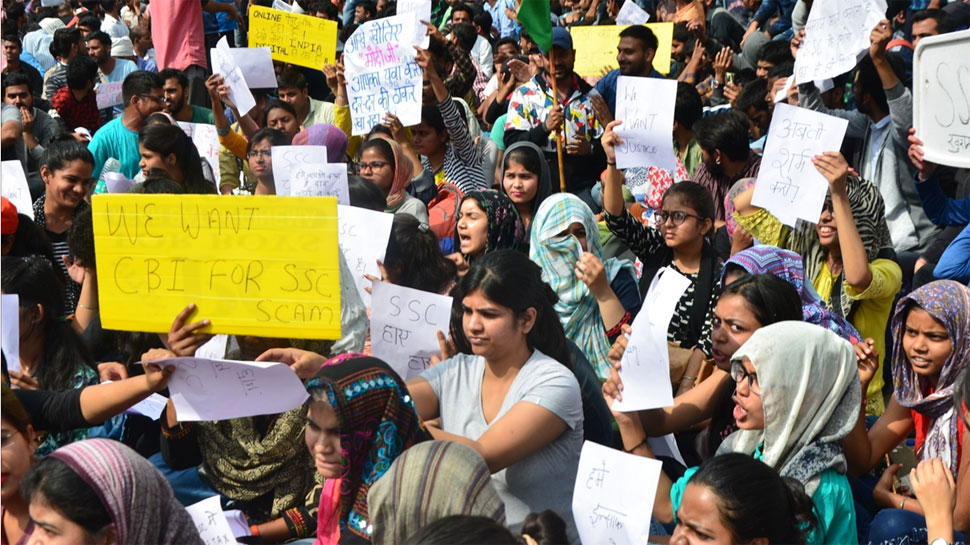Myanmar Officials Plan to Fortify Border Fence Between Rakhine State and Bangladesh
Rathedaung township residents protest visit of an interfaith dialogue group, Sept. 6, 2017.
Photo courtesy of Soe Thein
Top government officials in Myanmar are discussing how to strengthen and extend border fencing on the border with Bangladesh as clashes continue between Myanmar security forces and Muslim insurgents, forcing thousands to flee their homes.
More than 150,000 Rohingya have crossed the border into Bangladesh since Aug. 25, according to figures updated by the U.N. on Sept. 6.
At a meeting in Naypidaw on Wednesday to discuss funding for repairing border fences, Minister of Home Affair Lt-Gen Kyaw Swe and Social Welfare Minister Dr.Win Myat Aye described the need for tighter security along the border to thwart attacks from what they said were terrorists in order to provide humanitarian aid, the President’s Office said in a statement on Facebook.
Villages burned in Rakhine are meanwhile being set ablaze not by local residents but by “trained extremists” who coerce villagers to take part, Border Affairs and Security Minister for Rakhine state Col. Phone Tint said in a news conference on Wednesday.
“They are terrorists who have been given military training, and they force the villagers to do what they want,” Tint told reporters in Rakhine’s Maungdaw township. “They tell the villagers they will burn down their houses, too, unless they are joined by at least one from each household.”
More than 6,800 houses have now been burned in 59 villages, with 387 “terrorists” killed and 38 arrested since Aug. 25 following attacks the day before on Myanmar police posts by an Islamic insurgent group, the Arakan Rohingya Salvation Army (ARSA), Myanmar’s Government Information Committee said in a statement on Wednesday.
Guns and knives
“We don’t like terrorists and terrorism,” Mahmood Jolly, a Muslim resident of Maungdaw township’s Kutpakaung village told RFA’s Myanmar Service. “We don’t accept them, and we don’t let them approach our village."
“We are facing difficulties in getting groceries and medical care, though, as we can’t travel safely to Maungdaw.”
Yan Zaw, a Hindu man sheltered at one of the 22 refugee centers now set up in Maungdaw, said that terrorists had attacked his village armed with knives and guns.
“We ran away as soon as we saw them come in with their weapons, and they set fire to our village,” he said. “They wore long face coverings, and we could only see their eyes. Seven houses were burned down, and one person was killed.”
Residents of northern Rakhine’s Rathedaung township meanwhile protested the Wednesday visit of an interfaith committee, the Myanmar Interfaith Dialogue Group, set up to promote reconciliation between Rakhine’s warring communities, with local Buddhist monks refusing outright to meet with committee members.
“We protested peacefully against the committee,” Rathedaung resident Sein Hla Aung said.
“Bengalis have been killing our Rakhine people and other ethnic groups and setting fire to our houses,” Sein Hla Aung said, using a pejorative term for Rakhine’s Muslim Rohingya minority group, who are widely regarded as illegal migrants from Bengal although many have lived in Rakhine for generations. “We don’t want to deal with them,” he said.
Reported by Thiha Htun, Min Thein Aung, and Waiyan Moe Myint for RFA’s Myanmar Service. Translated by Khet Mar. Written in English by Richard Finney.
radio Free Asia
(Published 2017/09/08 at 8:00 am)




















Comments